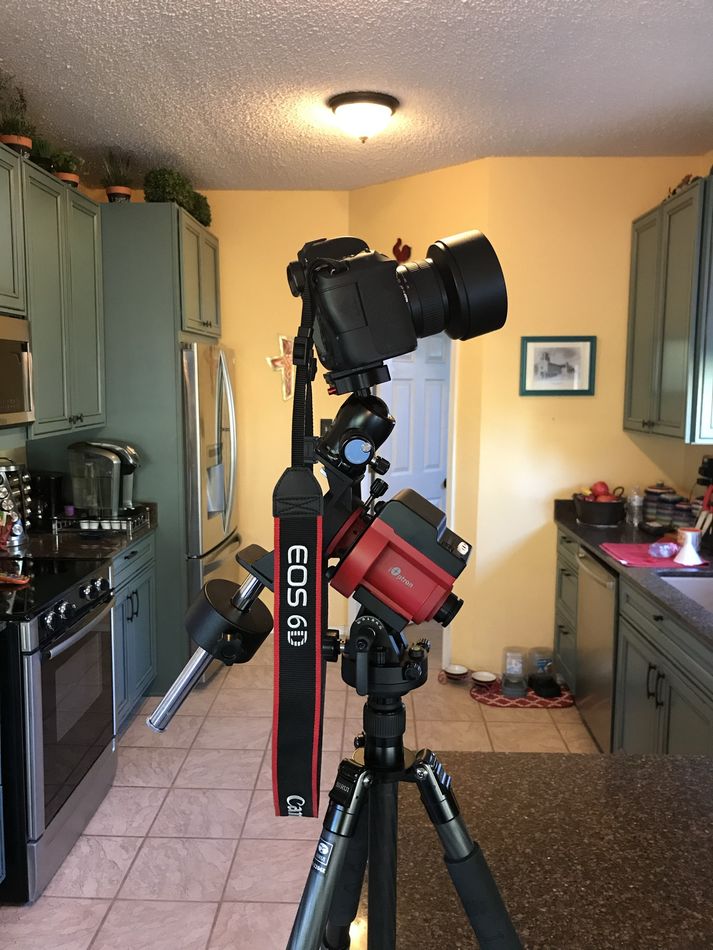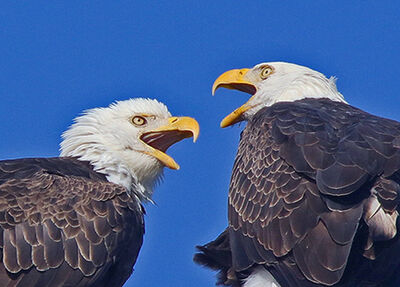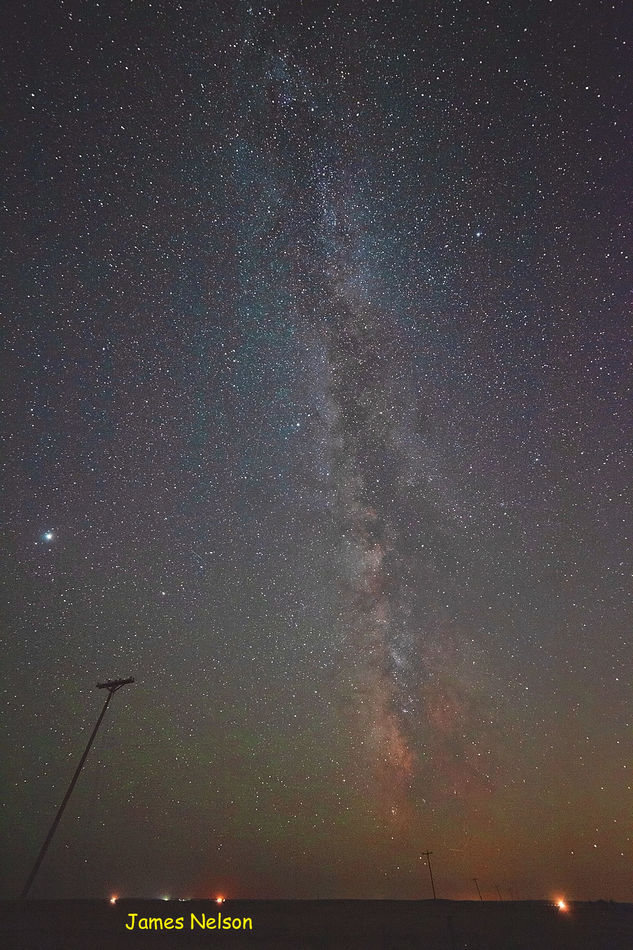Wide angle lens for Milky Way shots
Feb 6, 2022 13:20:26 #
wrk1234 wrote:
I will be trying to get some good milky way shots ... (show quote)
IMO, the 20mm will give you more lee way as regards composition - the f-stop is the same and the lens sharpness is the same for all practical purposes. The Canon 5D IV does not have a great sensor and therefore, a 1.4 lens is very advantageous for you vs f2.8. ....
.
Feb 6, 2022 14:03:50 #
wrk1234 wrote:
I will be trying to get some good milky way shots ... (show quote)
I use everything between a 6.5mm and a 50mm for the Milky Way. Just brush up on creating panoramas and it makes no difference what lens you use.
bwa
Feb 6, 2022 14:26:21 #
Triplets wrote:
I use a Sigma 14-24 f/2.8 on a Nikon D750. Typically I take 8-10 shots about 10 seconds each then merge them using Sequator. This is from Salt Pond in Eastham on Cape Code, Mass.
Very nice! I sometimes take multiple shots, including a “dark frame” and combine in them in post using Starry Landscape Stacker (a Mac app) which reduces the noise from shooting a higher ISO. However, if the foreground isn’t too complex, I will use my iOptron Star Guider Pro and take a longer (2-3 minutes) exposure at a lower ISO (usually around 800).

Feb 6, 2022 14:33:17 #
Nickaroo wrote:
I have taken pics that are really good, but I took them at Mount Paloma’s observatory. You really nailed this shot.
Thanks very much. I took that shot at Wild Horse Butte, at Goblin State Park in Utah. It is a recognized international dark sky location. Hard to tell from this long exposure but it was so dark out that I could barely see my hand in front of my face.
Feb 6, 2022 14:39:05 #
A few years ago, I took a night sky course lasting several days. I used a Tokina 16-28mm. A couple of people had the same lens, and some had the equivalent Nikon. Another thing you might want is a warming pad to wrap around the lens to prevent condensation. The instructor told us to get Thermacare Heat Wraps.
https://smile.amazon.com/s?k=ThermaCare+Heatwraps&i=hpc&crid=3UGE69TEJL0FJ&sprefix=thermacare+heatwraps%2Chpc%2C68&ref=nb_sb_noss_1
https://smile.amazon.com/s?k=ThermaCare+Heatwraps&i=hpc&crid=3UGE69TEJL0FJ&sprefix=thermacare+heatwraps%2Chpc%2C68&ref=nb_sb_noss_1
Feb 6, 2022 14:51:24 #
Since you will be manually focusing there is a very good f2.8 24mm you will find on eBay for about a hundred
Feb 6, 2022 16:23:36 #
larryepage
Loc: North Texas area
larryepage wrote:
...In this discussion, we do not know what camera the OP is using. We don't know whether it is full frame, half frame, or something smaller. And we don't know the make or model...
I don't know how I missed the OP's statement of what camera he is using in his original post. But somehow I did. My apologies for that. I still stand by my recommendation for a lens that will go to 14mm.
I first bought a Nikkor 18-35mm AF-D zoom. It is totally unacceptable for this job...optical focal length range, aperture, and optical performance are all unsuitable. It's now in my DX kit as a normal-wide zoom.
Feb 6, 2022 16:39:21 #
Feb 6, 2022 19:47:18 #
larryepage
Loc: North Texas area
imagemeister wrote:
Prime lenses are BETTER than zooms for this application ....
Primes are perhaps better than mediocre zooms for this application for some experienced folks who have it all figured out and know exactly what they are doing and have a precise plan. Not for those who are learning and who are asking what is the best focal length. Changing lenses in the dark is a recipe for disaster.
Feb 6, 2022 19:54:18 #
larryepage wrote:
Changing lenses in the dark is a recipe for disaster.
Yes, but Why are you changing lenses ??
Feb 6, 2022 20:01:37 #
I had been using a 16 - 35 mm Canon lens but found a Rokinon 14 mm lens last fall and I liked the result. Shot using a Canon 5D Mk II last October. Once the Milky Way becomes visible again this spring I'll be out playing with it again. Shot at 3200 ISO, 20 seconds at f2.0.
Feb 6, 2022 20:26:04 #
Feb 6, 2022 20:28:01 #
Sidwalkastronomy
Loc: New Jersey Shore
I have a 24mm pancake. I'll mount the camera on top of my scope on an AVX Gem mount. I'll have to experiment
Feb 6, 2022 20:53:31 #
larryepage
Loc: North Texas area
imagemeister wrote:
Yes, but Why are you changing lenses ??
I'm not. I really like my 14-24mm f/2.8 Nikkor for this. But I was shooting in a group that moved from shooting the arch in the boonies to shooting an abandoned house with the Galactic core. One of the other guys was using prime lenses and needed or wanted to switch. It didn't go well for him.
Feb 8, 2022 12:38:17 #
My go-to MW lens is my Sigma 28/1.4, it's one of the best lenses to capture lot of coma-less stars. Remember f1.4 has different aperture opening between a 14mm and a 28 mm lens.
If you want to reply, then register here. Registration is free and your account is created instantly, so you can post right away.



